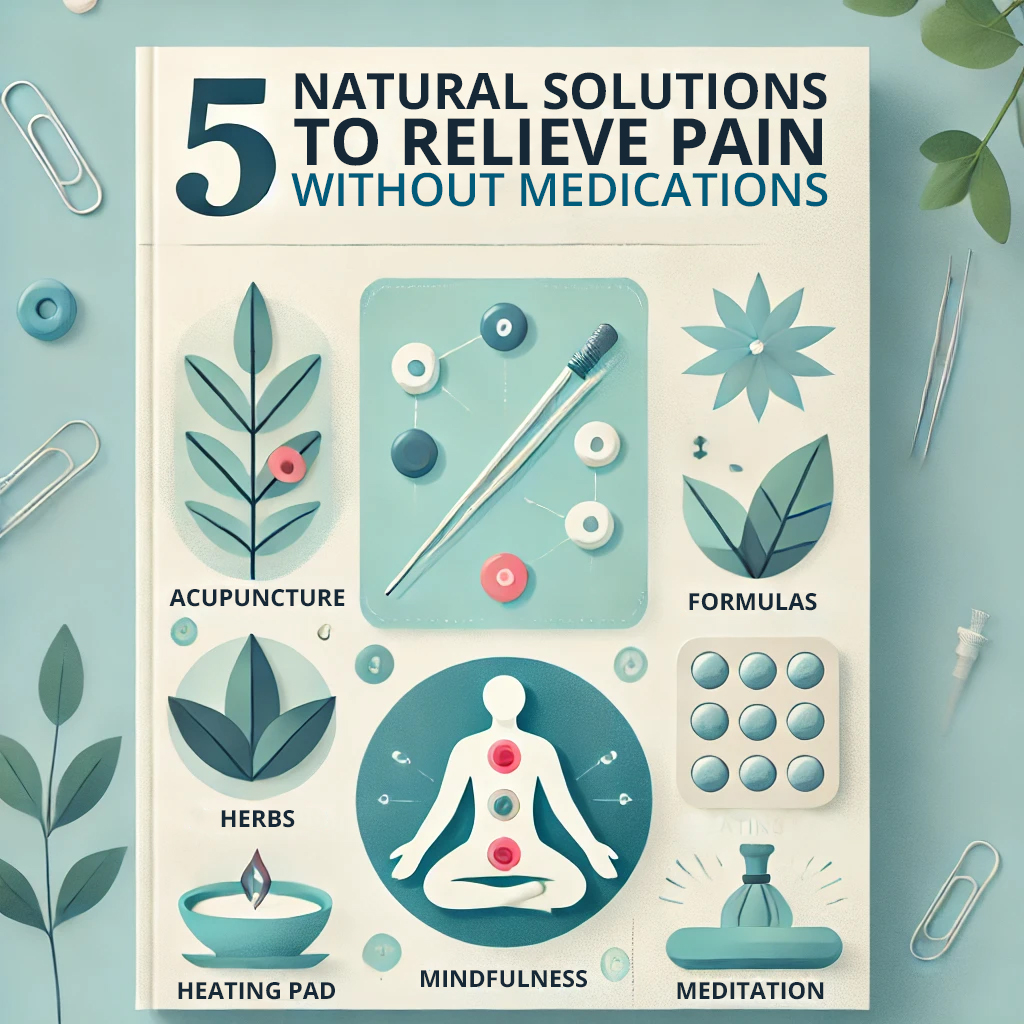As you navigate the challenges of asthma management in St. Petersburg, you may be surprised to learn that acupuncture, a centuries-old practice, has been recognized by the World Health Organization for its effectiveness in treating respiratory conditions, offering a drug-free alternative to help you breathe easier and regain control over your daily life. By stimulating specific points, acupuncture can enhance respiratory function, reduce inflammation, and alleviate chronic symptoms, allowing you to exercise more freely and enjoy a better quality of life. Now, take the next step towards a life where breathing easier is just the beginning.
Key Takeaways
- Acupuncture is a recognized treatment for asthma, reducing attack frequency and promoting easier breathing, as acknowledged by the World Health Organization.
- Regular acupuncture sessions can alleviate asthma symptoms, improve lung function, and enhance overall respiratory health for St. Petersburg residents.
- Acupuncture offers a drug-free option to manage asthma, which can be integrated with lifestyle and dietary changes for a holistic approach.
- In St. Petersburg, finding a qualified acupuncturist with experience in respiratory conditions is crucial for effective asthma management and relief.
- Consistency in follow-up sessions is key to achieving ideal results in managing chronic asthma conditions with acupuncture.
Understanding Asthma and Acupuncture
As you navigate the complexities of asthma management, it is essential to understand the underlying dynamics of this chronic condition and how acupuncture can offer a natural alternative. Asthma affects over 20 million Americans, causing airway inflammation that leads to symptoms like coughing, wheezing, and shortness of breath. Traditional Chinese Medicine views asthma as manageable through acupuncture, aiming to reduce the frequency of attacks and improve lung function. Acupuncture has been recognized by the World Health Organization (WHO) for its effectiveness in treating various health conditions recognizing its effectiveness, and its increasing popularity in Western medicine for holistic approaches can be a valuable asset in asthma management. By stimulating specific points, acupuncture can enhance respiratory function by reducing inflammation, relaxing chest muscles, and promoting bronchial drainage. This ancient practice offers a drug-free alternative to conventional treatments, and can be integrated with lifestyle changes and dietary adjustments to support overall lung health and reduce asthma triggers. By understanding the connection between asthma and acupuncture, you can take the first step towards embracing a more holistic treatment approach that addresses your unique needs.
Benefits of Acupuncture Treatment
You’ll experience a range of advantages when you incorporate acupuncture into your asthma management plan. By incorporating acupuncture treatments into your routine, you’ll notice significant improvements in your overall health, particularly regarding respiratory health. Acupuncture has been shown to alleviate asthma symptoms by enhancing lung function and reducing airway inflammation, making it an effective complementary therapy for asthma management. Additionally, regular acupuncture sessions can lead to a reduction in chronic pain and inflammation muscle tension relief, which can exacerbate asthma symptoms. You’ll experience fewer asthma attacks, improved exercise tolerance, and reduced frequency of asthma attacks. Regular acupuncture treatments can also lead to improved overall respiratory health and enhance the quality of life for individuals living with asthma. Additionally, acupuncture can help reduce stress, which is a common trigger for asthma attacks. By reducing stress, you’ll be able to breathe easier and enjoy a better quality of life. As you make lifestyle modifications and dietary changes to support your asthma management, acupuncture treatments can provide a thorough approach to managing asthma effectively.
How Acupuncture Works for Asthma
When you incorporate acupuncture into your asthma management plan, it’s natural to wonder how this ancient practice can make a difference in your breathing. The key lies in acupuncture therapy‘s ability to promote overall well-being by targeting specific points associated with respiratory health. By stimulating these points, acupuncture helps reduce airway inflammation and enhance lung function, alleviating chronic asthma symptoms. This traditional Chinese Medicine approach aims to balance your body’s essential energy flow, addressing the root causes of asthma rather than just its symptoms. As a result, you can experience fewer asthma attacks, improved exercise tolerance, and reduced coughing, wheezing, and shortness of breath. Acupuncture also works to boost your immune system, allowing your body to respond more effectively to environmental triggers. In a similar way that acupuncture provides thorough pain relief and improves overall function in the thoracic region middle back pain relief, it can also help alleviate asthma symptoms by promoting balanced energy flow and reducing inflammation. Regular sessions can become a powerful tool in your asthma management toolkit, helping you regain control over your breathing and overall well-being.
Finding a Qualified Acupuncturist
Often, finding the right practitioner is the first step in successfully integrating acupuncture into your asthma management plan. Many acupuncturists incorporate herbal medicine expertise Traditional Chinese Medicine in their treatment plans, which can provide a holistic approach to addressing underlying health issues. Check for reviews and testimonials from previous patients to assess the effectiveness and quality of care provided by the acupuncturist. It’s also essential to verify if the acupuncturist incorporates evidence-based practices in their treatment plans, which can enhance the overall effectiveness of asthma management. Inquire about their approach to holistic care, including lifestyle and dietary recommendations that can complement acupuncture treatment for asthma. By doing your research and finding a qualified acupuncturist who meets these criteria, you can feel confident in the safety of acupuncture and the development of an effective treatment plan tailored to your unique needs. This will enable you to breathe easier and improve your overall health and well-being.
Getting Started With Acupuncture
Now that you’ve found a qualified acupuncturist, it’s time to take the first step towards incorporating acupuncture into your asthma management plan. As you consider acupuncture, remember that it can also provide a holistic method for addressing insomnia and other sleep-related issues insomnia treatment.
As you begin your treatment, remember that acupuncture is a safe and effective adjunctive therapy that can enhance your overall well-being. By working collaboratively with your practitioner, you’ll develop a personalized treatment plan that addresses your specific health concerns, including asthma. Consistency is key, so be prepared to schedule follow-up sessions to achieve ideal results, especially for chronic conditions like asthma. With acupuncture, you can breathe easier, knowing you’re taking a holistic approach to managing your asthma.
Frequently Asked Questions
Can Acupuncture Help You Breathe Better?
You can find relief from asthma symptoms with acupuncture, which helps you breathe better by reducing airway inflammation, enhancing lung function, and promoting relaxation, ultimately leading to fewer asthma attacks and improved overall respiratory health.
Where Are the Acupuncture Points for Asthma?
You’re wondering where the acupuncture points for asthma are? Well, they’re mainly found on the Lung, Kidney, and Spleen meridians, with key points like LU1, LU5, and BL13 targeting respiratory function, and others like ST36, PC6, and TH5 supporting overall well-being and immune function.
Can Acupuncture Help With Allergies and Asthma?
You can find relief from allergies and asthma symptoms through acupuncture, which addresses underlying imbalances, improves Wei Qi circulation, and enhances lung function, offering a natural, holistic solution to breathe easier and live healthier.
How Does Acupuncture Work?
Imagine your body as a harmonious orchestra, and acupuncture as the conductor, expertly guiding your energy flow. You stimulate specific points, and voilà! Your Qi flows, circulation improves, and lung function strengthens, making breathing easier – a perfect symphony of health.
Conclusion
As you start your journey to breathe easier, remember that every gentle breeze, every effortless inhale, and every moment of freedom from asthma’s grip is within reach. Acupuncture is your key to releasing a life where every breath is a celebration of energy and well-being. By embracing this ancient practice, you’ll discover a sense of empowerment, a renewed connection to your body, and a profound appreciation for the simplicity of breathing easily.
Unlock Your Full Health Potential
At Elite Care Acupuncture & Alternative Medicine, we help you achieve optimal wellness through personalized, holistic treatments. Whether you’re seeking pain relief, stress management, or natural health solutions, our experienced team is dedicated to supporting your journey.
Connect with Us:
Address:
1105 7th Avenue North, Saint Petersburg, FL 33705
Phone: +1 (727) 606-8700
Website: www.EliteCare.clinic




